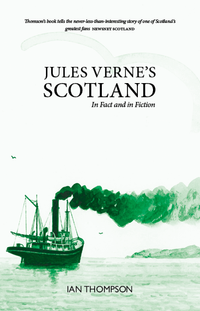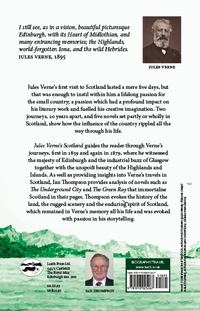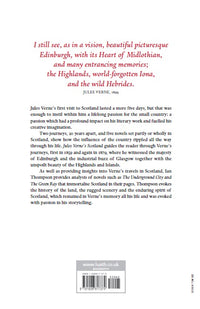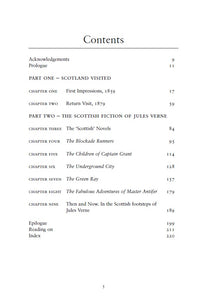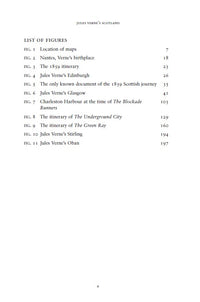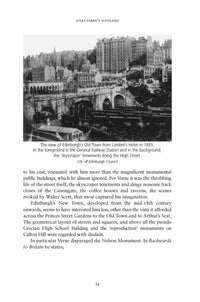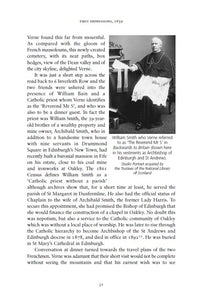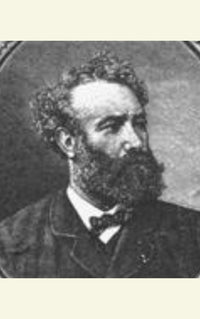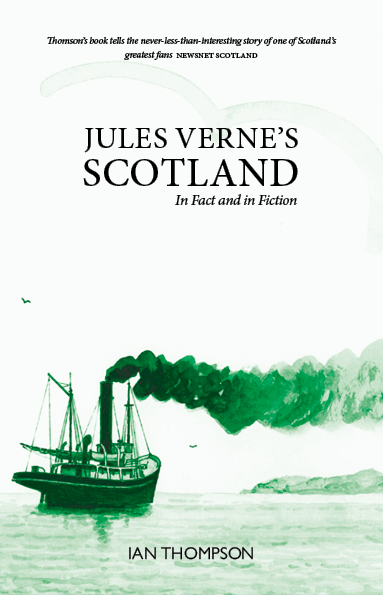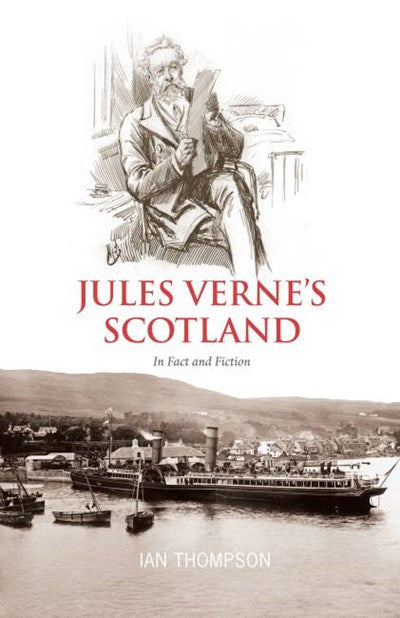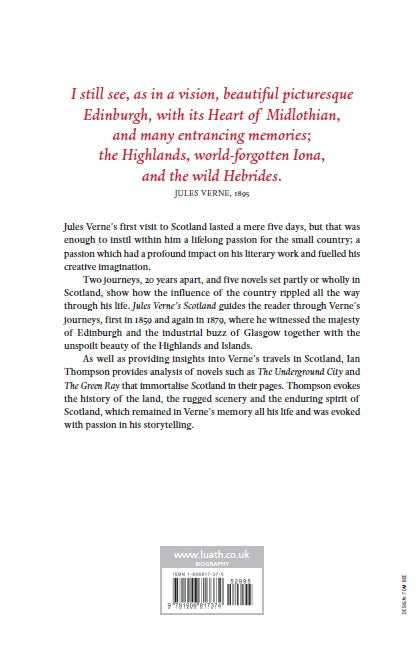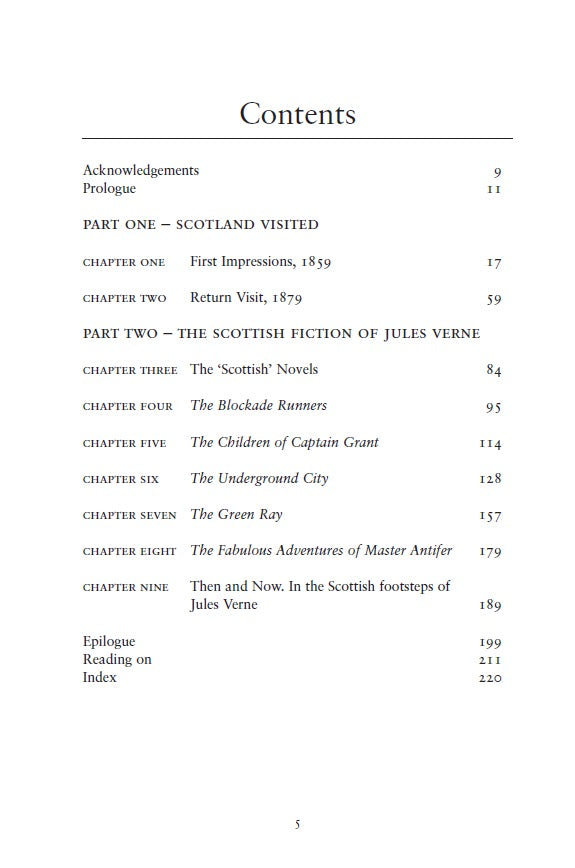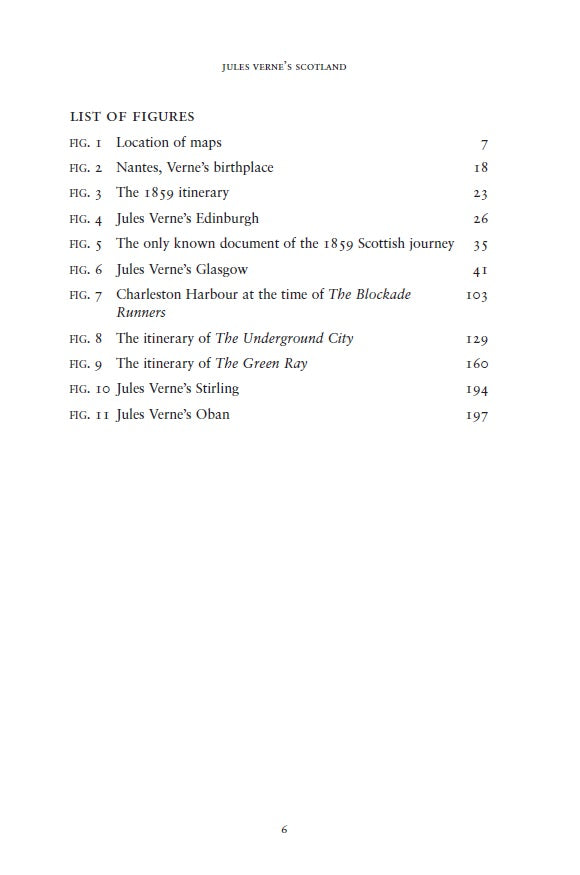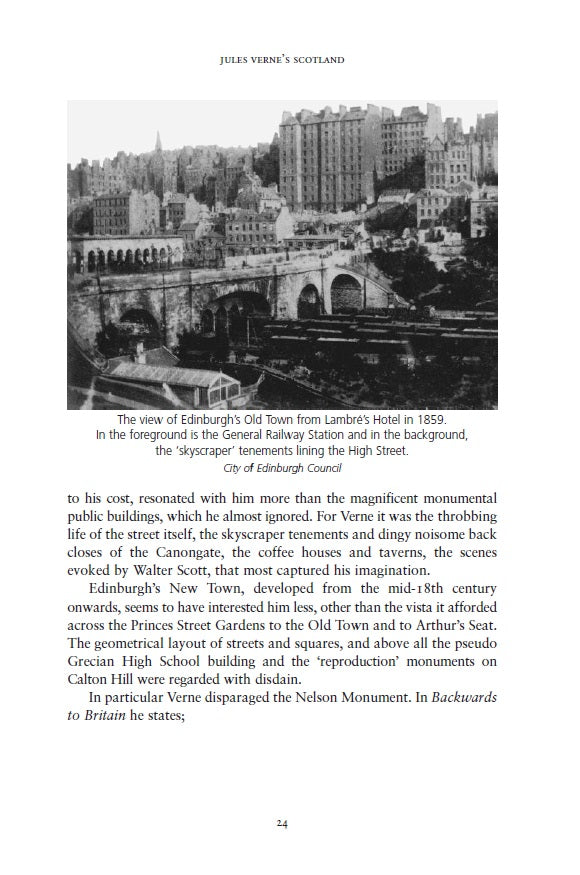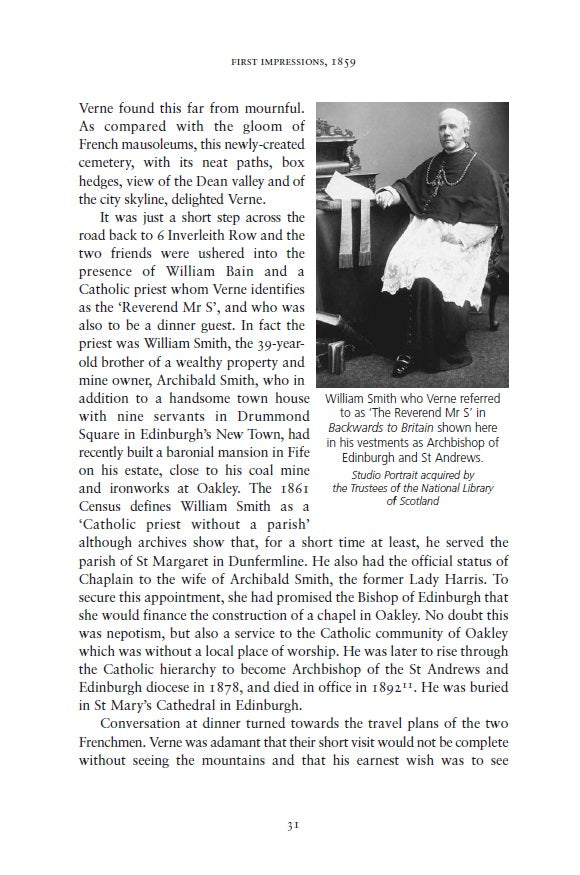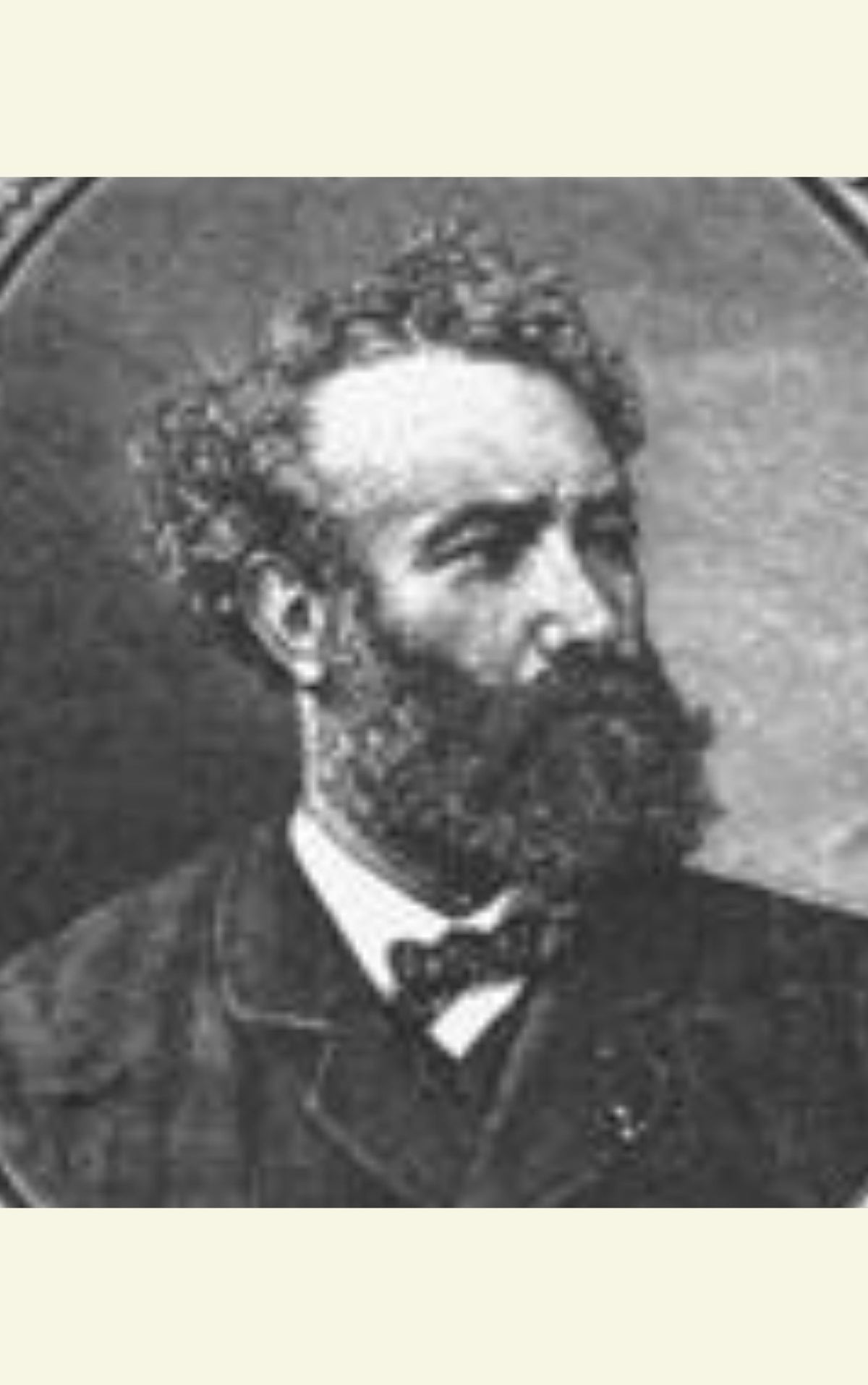Jules Verne’s Scotland
In Fact and Fiction
- Regular
- £9.99
- Sale
- £9.99
- Regular
- £9.99
- Unit Price
- per
Our Ebooks are powered by Glassboxx
Click here to learn about our Ebooks.
About the Book:
I still see, as in a vision, beautiful picturesque Edinburgh, with its Heart of Midlothian, and many entrancing memories; the Highlands, world-forgotten Iona, and the wild Hebrides. JULES VERNE, 1895
Jules Verne's first visit to Scotland lasted a mere five days, but that was enough to instil within him a lifelong passion for the small country; a passion which had a profound impact on his literary work and fuelled his creative imagination.
Two journeys, 20 years apart, and five novels set partly or wholly in Scotland, show how the influence of the country rippled all the way through his life. Jules Verne's Scotland guides the reader through Verne's journeys, first in 1859 and again in 1879, where he witnessed the majesty of Edinburgh and the industrial buzz of Glasgow together with the unspoilt beauty of the Highlands and Islands.
As well as providing insights into Verne's travels in Scotland, Ian Thompson provides analysis of novels such as The Underground City and The Green Ray that immortalise Scotland in their pages. Thompson evokes the history of the land, the rugged scenery and the enduring spirit of Scotland, which remained in Verne's memory all his life and was evoked with passion in his storytelling.
Reviews:
Verne's imagination may have taken him - and us - to the centre of the Earth and the bottom of the ocean; but it was to Scotland that it returned, over and over again. THE SCOTSMAN
Although the trip was short-lived, Verne’s experience of Scotland lived forever in his memory, sparking scenes and plots in future works. COLIN WATERS, News Net Scotland
The reason Verne is still read by millions today is simply that he was one of the best storytellers who ever lived. ARTHUR C CLARK
About the Author:
 JULES VERNE (1828-1905), French writer and pioneer of science fiction, whose best known works today are Twenty Thousand Leagues Under the Sea (1870) and Around the World in Eighty Days (1873).
JULES VERNE (1828-1905), French writer and pioneer of science fiction, whose best known works today are Twenty Thousand Leagues Under the Sea (1870) and Around the World in Eighty Days (1873).
Jules Gabriel Verne was born on February 8, 1828, in Nantes, France. His parents were of a seafaring tradition, a factor which influenced his writings. As a boy, Jules Verne ran off to be a cabin boy on a merchant ship, but he was caught and returned to his parents. In 1847, Jules was sent to study law in Paris. Later in 1850, Jules Verne's first play was published. His father was outraged when he heard that Jules was not going to continue law and discontinued the money he was giving him to pay for his expenses in Paris. This forced Verne to make money by selling his stories.
 IAN THOMPSON graduated from the Universities of Durham and Indiana. He has held lecturing posts in the universities of Leeds, Southampton and Miami University Ohio before being appointed to the Chair of Geography at Glasgow University in 1976. He is now a Professor at the University of Glasgow, and a leading expert on Jules Verne. was made an Honorary Life Fellow of La Societe de Geographie (Paris) in 2003 and promoted to the rank of Commandeur dans l'Ordre des Palmes Academiques by the French Government in 2005. He was for many years President of the Alliance Francaise de Glasgow.
IAN THOMPSON graduated from the Universities of Durham and Indiana. He has held lecturing posts in the universities of Leeds, Southampton and Miami University Ohio before being appointed to the Chair of Geography at Glasgow University in 1976. He is now a Professor at the University of Glasgow, and a leading expert on Jules Verne. was made an Honorary Life Fellow of La Societe de Geographie (Paris) in 2003 and promoted to the rank of Commandeur dans l'Ordre des Palmes Academiques by the French Government in 2005. He was for many years President of the Alliance Francaise de Glasgow.

